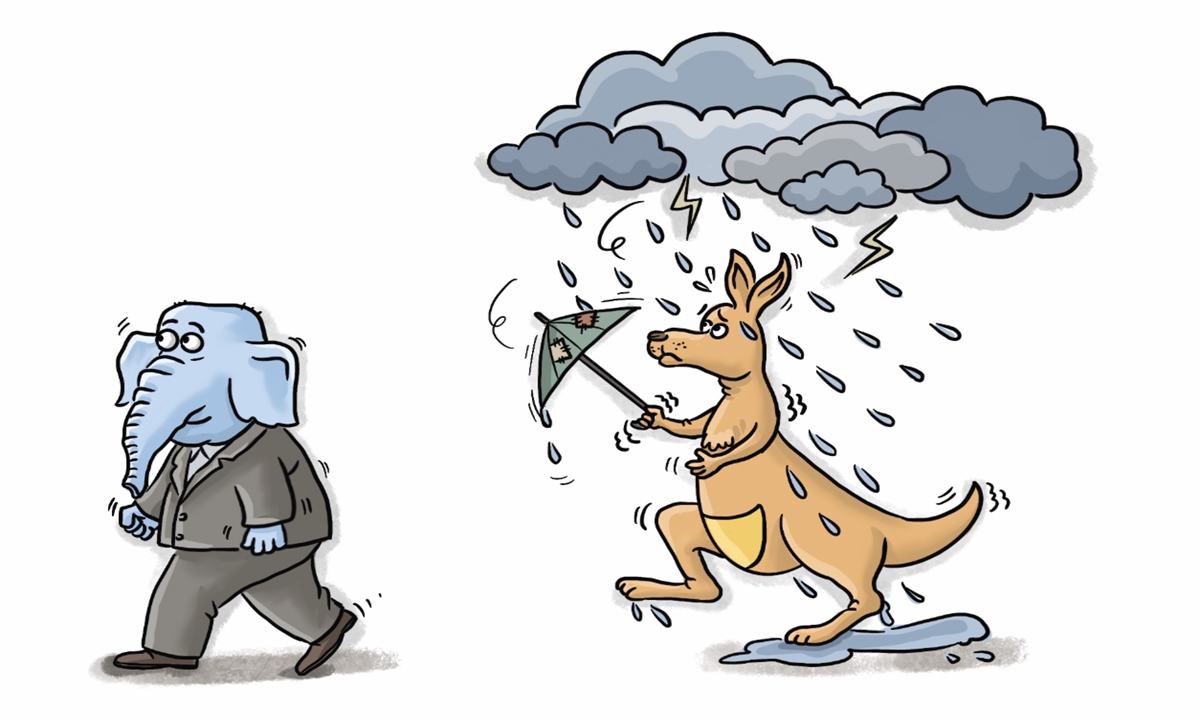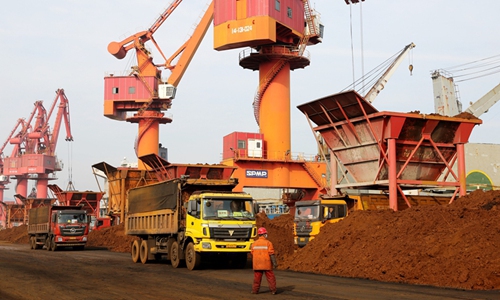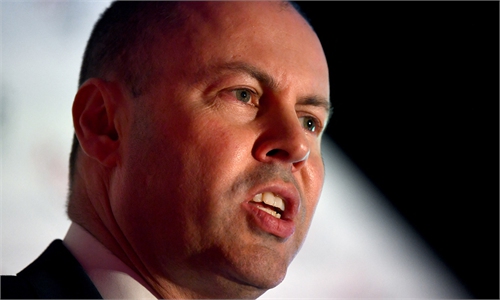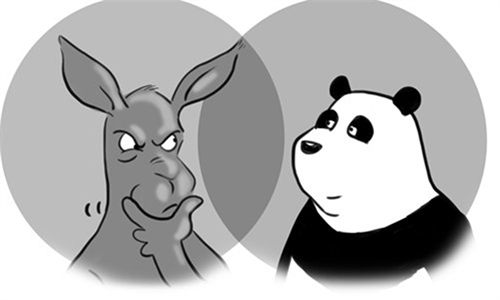COMMENTS / EXPERT ASSESSMENT
Australia is begging India for FTA as it alienates China

Illustration: Xia Qing/Global Times
After single-handedly and ruthlessly trashing ties with its biggest trading partner and costing its economy billions of dollars and countless jobs in export-oriented sectors, Australia, rather than trying to rectify its mistakes and fix ties with China, appears to be betting everything on finding alternatives in its small circle of political allies.
The problem is there are not many options, if any at all, when it comes to replacing the Chinese market. Quite embarrassingly, Australia's poor judgment in its hostile approach toward China and Chinese people has essentially put Canberra in a desperate position in soliciting help from its allies like the US and India.
The desperation felt by Australia's political leaders is on full display in its push for a free trade agreement (FTA) with India. As Australian Foreign Minister Marise Payne and Defence Minister Peter Dutton prepare for talks in New Delhi with their Indian counterparts later this week, part of a packed trip with stops in Indonesia, South Korea and the US, Canberra renewed its push for the long-stalled FTA, signaling that discussions will be on the agenda.
These latest moves underlined Canberra's growing anxiety and impatience in its attempt to find alternatives to offset the mounting losses in the Chinese market.
Australian officials, such as Treasurer Josh Frydenberg, have bizarrely claimed that China's "political pressure" has failed to impact Australia's economy. However, political elites in Canberra can talk tough as they want, but their actions paint a completely different picture - one like an ant on a hot pan feverishly trying to find a way out.
Before the reported discussions in New Delhi, Canberra has already been sparing no effort in pushing for the FTA with India. Last month, former Australian Prime Minister Tony Abbott was dispatched to India to kickstart the discussions. In July, Trade Minister Dan Tehan reportedly sent a proposal to Indian Commerce Minister Piyush Goyal on strengthening bilateral economic relationship, calling for resuming negotiations for the FTA and "welcoming" Indian officials' "positive comments."
Positive comments are all that New Delhi has offered so far. Indian External Affairs Minister Subrahmanyam Jaishankar said earlier this week that there is a "real sense that we are progressing this time." But there is no signal whatsoever so far that India will compromise on key sticking points, including reduction or elimination of tariffs on farm produce, which is precisely why the FTA, known as the Comprehensive Economic Cooperation Agreement, failed to materialize after a decade of negotiations. Talks have been stalled since 2015.
It's unclear specifically what will be discussed regarding the FTA during the upcoming trip to India, but it's almost certain that nothing concrete will come out of it, let alone progress needed to finalize the deal as Canberra wishes.
Even if breakthroughs are made, it would mean Canberra has had made major concessions on key terms that would inflict damage on Australian industries, particularly its agricultural sector, for years and decades to come.
Australian officials have no one to blame but themselves, because by so anxiously and impatiently pushing for the trade deal - or in more blunt terms begging India for a deal, they have given up any leverage which would allow them to stand up for Australian businesses and farmers and push for more favorable terms from Indian officials.
New Delhi will surely take full advantage of Australian's weak position. India is known for its economic protectionism and unreliability when it comes to trade negotiations. Canberra officials should know this because last year India pulled out of the RCEP at the very last minute just because its demands are not met.
Politicians in Canberra have proven immune to any common sense and appear ignorant of where its real national interests lie. The bottom line is that they can talk tough all they want about China, but they are the ones going around begging, not China.
The author is the deputy director of the Business News Center at the Global Times. bizopinion@globaltimes.com.cn



